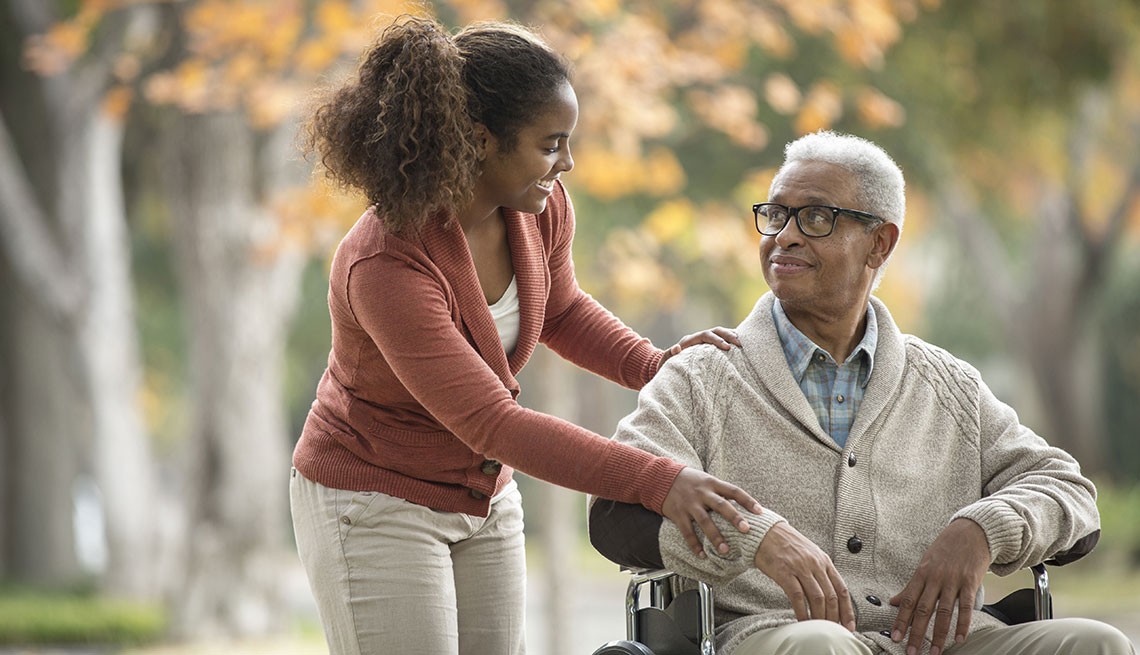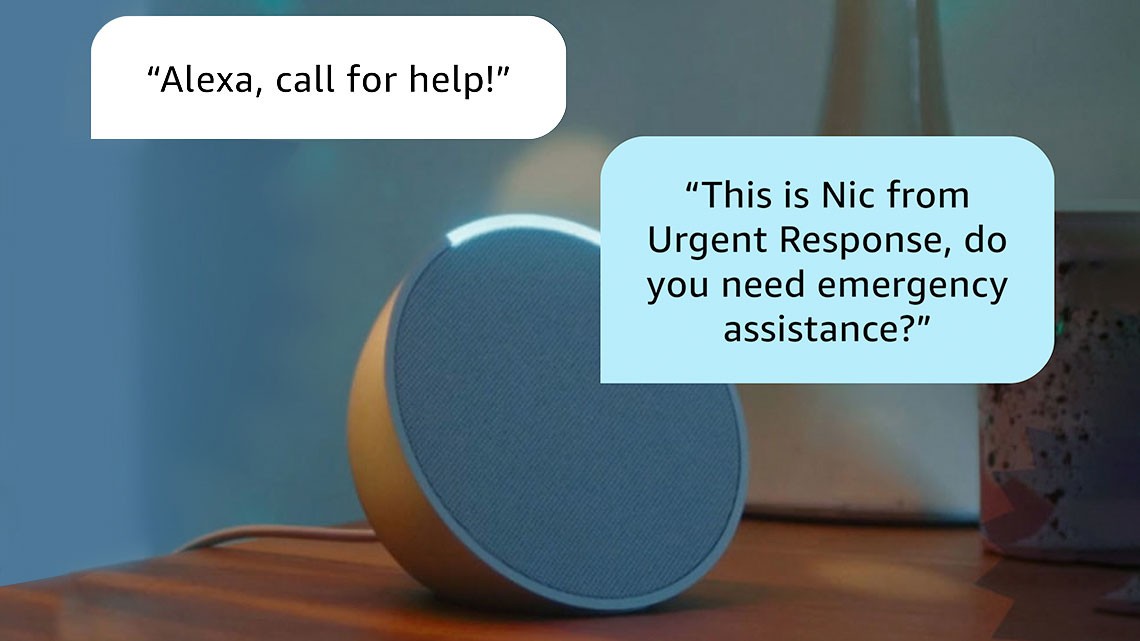Staying Fit
Almost without noticing, America has become a nation of caregivers as aging baby boomers cope with even more aged parents while worrying about who’s going to take care of them someday. With 48 million individuals providing unpaid care for family members and friends, there’s not much that’s comical about it.
California comedian and up-and-coming TV comic Jesus Trejo, 37, knows this better than most: He is a full-time caregiver for his father, as he was for his mother, while building a promising comedy career doing stand-up, comedy specials (Stay at Home Son on Showtime; Practicing? on YouTube), and TV acting and writing (Mr. Iglesias on Netflix, This Fool on Hulu).


AARP Membership— $12 for your first year when you sign up for Automatic Renewal
Get instant access to members-only products and hundreds of discounts, a free second membership, and a subscription to AARP the Magazine.
He and his parents — his “two kids at home,” as he lovingly joked onstage about his mom and dad, then in their 70s — were even the subject of a 2020 AARP-produced documentary, Care to Laugh. The film followed him and his family for a year as he pursued his dreams while also taking care of his mother, Adelaida, who had been diagnosed with brain cancer and diabetes, and later his father, Antonio, who was diagnosed with stage 2 colon cancer.
“It focused on me juggling life, career, family, all of it,” Trejo told the Long Beach Press-Telegram in a 2020 interview with his hometown paper. “Where I was in my career, I didn’t have the means to hire a caregiver, so everything falls on me.”
Since then, his mother has passed. But he’s still actively involved with caring for his father, and he’s learned a lot. He passed on some of the benefits of his experience — plus some jokes — when he hosted a live AARP Town Hall, “Care to Laugh: Juggling Caregiving With Humor and Help,” on Nov. 30 at The Space, the edgy new events-and-arts venue in Las Vegas.
The hour-long comedy/caregiving special also featured a panel of experts marshaled to discuss the increasingly pressing problem of what to do about long-term care for older adults in America. The panel featured clinical psychologist Dr. Sherry Blake, AARP financial ambassador Jean Chatzky, clinical social worker Lori Nisson and a virtual appearance by Health and Human Services Secretary Xavier Becerra.
Prior to the special, Trejo sat down with AARP for an interview about how he started caregiving, the lessons he’s learned, his top three tips and how a sense of humor is crucial.
When did he become a caregiver?
Like many American-born children of immigrants (Trejo’s parents came from Mexico), he started young as chief translator for his parents, even though his own first language was Spanish, too.
“Ever since I started getting full command of the English language, which for me wasn’t until the fifth grade, and right around that time was when I started to translate paperwork for my parents as best as I could, and that was the start of my caregiving journey.”
An only child, he accompanied his parents to doctor appointments and helped them fill out paperwork for health insurance and Medi-Cal. “I mean, it’s hard for me now; I don’t know how I did it back then. … There was a lot of pantomiming. I kind of had to hit the ground running and figure it out quick for the sake of my parents’ health, really.”




































































More From AARP
Faces of Caregiving
These people want to improve caregiving — and have been caregivers themselvesBruce Willis’ Wife Says She ‘Struggles With Guilt’
Emma Heming Willis shares what she has learned since revealing the actor’s battle with frontotemporal dementiaThe Sandwich Generation Feels the Caregiving Crunch
Caring for two people is more than twice as hard
Recommended for You